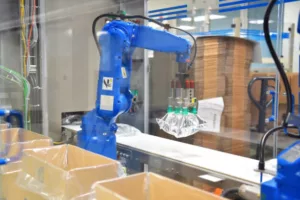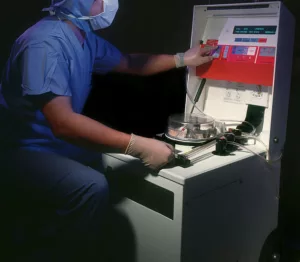Dialysis Technician Jobs 2024 – Explore High-Demand Dialysis Technician Jobs Now!

Are you a dialysis technician who is interested in dialysis technician jobs? Discover fulfilling opportunities in the healthcare field as a Dialysis Technician. Explore open positions, competitive salaries, and meaningful work that makes a difference with Dialysis technician jobs, and Start your journey today!
A Dialysis Technician plays a vital role in the healthcare system, specializing in the care and treatment of patients with kidney-related conditions. Tasked with operating and maintaining dialysis machines, these professionals ensure that patients receive life-sustaining treatments. Key responsibilities include setting up equipment, monitoring patients during dialysis sessions, and collaborating with the healthcare team to deliver comprehensive care. With a focus on compassion and technical expertise, Dialysis Technicians contribute significantly to enhancing the quality of life for individuals with renal challenges.
Patient care focus for dialysis technicians.
1. Vital Signs Monitoring:
– Diligent tracking of blood pressure, pulse, and other vital signs during dialysis sessions.
2. Patient Comfort and Assistance:
– Ensuring patients are positioned comfortably and providing assistance as needed throughout the treatment.
3. Empathetic Patient Interaction:
– Cultivating a compassionate approach to address patient concerns and offer emotional support during dialysis.
4. Treatment Safety and Efficacy:
– Rigorous attention to protocols to guarantee the safety and effectiveness of each dialysis treatment.
5. Response to Patient Needs:
– Promptly addressing any emerging issues or discomfort experienced by patients during their dialysis sessions.
6. Communication on Treatment Progress:
– Providing clear and understandable information to patients regarding the progress and outcomes of their dialysis treatment.
7. Collaboration with Healthcare Team:
– Working closely with nurses, nephrologists, and other healthcare professionals to ensure a comprehensive and coordinated approach to patient care.
8. Education on Self-Care:
– Offering guidance to patients on post-dialysis self-care practices, including dietary recommendations and fluid management.
9. Promoting a Positive Treatment Experience:
– Striving to create a positive and supportive atmosphere for patients undergoing dialysis to enhance their overall experience.
10. Emergency Preparedness:
– Being well-trained and ready to respond effectively in case of any medical emergencies during dialysis procedures.

Collaboration in health care teams among dialysis technicians
1. Interdisciplinary Communication:
– Facilitating clear and concise communication with nurses, nephrologists, and other healthcare professionals involved in patient care.
2. Patient Progress Updates:
– Providing timely updates on patient responses and progress during dialysis treatments to ensure a comprehensive understanding of each case.
3. Team Coordination in Dialysis Centers:
– Collaborating seamlessly with fellow healthcare providers within the dialysis center to optimize patient care delivery.
4. Participation in Care Planning:
– Actively participating in care planning discussions, contributing insights based on observations and interactions with patients.
5. Information Sharing:
– Sharing relevant patient information, treatment plans, and observations with the broader healthcare team to enhance overall patient care.
6. Problem-Solving Together:
– Engaging in collaborative problem-solving sessions to address challenges and find effective solutions for patient well-being.
7. Cross-Training Opportunities:
– Exploring cross-training initiatives to enhance the skill sets of the healthcare team, fostering a more versatile and adaptable workforce.
8. Multidisciplinary Meetings:
– Participating in multidisciplinary meetings to discuss patient cases, share expertise, and ensure a holistic approach to healthcare.
9. Training and Development Initiatives:
– Engaging in training programs and professional development opportunities to stay aligned with the evolving practices and standards in nephrology care.
10. Patient-Centric Approach:
– Collaborating with a shared commitment to a patient-centric approach, ensuring that each team member’s contributions contribute to the overall well-being of patients undergoing dialysis.
Infection control and safety measures among dialysis technicians
1. Adherence to Sterilization Protocols:
– Rigorous implementation of proper sterilization procedures for dialysis equipment to prevent the risk of infection.
2. Use of Personal Protective Equipment (PPE):
– Consistent and correct utilization of PPE, including gloves, masks, and gowns, to safeguard against potential contaminants.
3. Environment Sanitization:
– Regular cleaning and disinfection of the dialysis area and equipment surfaces to maintain a hygienic environment.
4. Hand Hygiene Practices:
– Strict adherence to thorough handwashing protocols before and after patient interactions and throughout the dialysis process.
5. Aseptic Technique Mastery:
– Mastery of aseptic techniques during the setup and breakdown of dialysis equipment to minimize the risk of contamination.
6. Bloodborne Pathogen Safety:
– Comprehensive training and strict adherence to safety measures to prevent the transmission of bloodborne pathogens during dialysis procedures.
7. Waste Disposal Compliance:
– Proper disposal of medical waste, including used dialysis supplies and materials, in accordance with healthcare regulations.
8. Emergency Response Preparedness:
– Being well-versed in emergency response protocols to swiftly address any unforeseen situations and minimize potential risks.
9. Patient Education on Infection Prevention:
– Educating patients on infection prevention measures, including proper catheter care and recognizing signs of infection.
10. Routine Equipment Maintenance:
– Regular maintenance and inspection of dialysis machines to ensure their proper functioning and minimize the risk of equipment-related complications.
11. Infection Surveillance and Reporting:
– Continuous monitoring for potential infections, prompt reporting of any incidents, and collaboration with healthcare teams to address and prevent outbreaks.
12. Compliance with Healthcare Regulations:
– Staying updated on and strictly adhering to healthcare regulations and industry standards related to infection control to maintain a safe healthcare environment.

RED ALSO: Dropbox jobs 2024 – Everything you need to know.
Technical troubleshooting for dialysis technicians
1. Equipment Calibration:
– Proficiently calibrating and adjusting dialysis machines to ensure accurate treatment delivery.
2. Machine Startup Procedures:
– Skillfully performing startup procedures, including priming lines and checking for any irregularities before initiating dialysis.
3. Alarm Response and Resolution:
– Promptly identifying and troubleshooting alarms, ensuring quick resolution to prevent treatment interruptions.
4. Fluid Management Optimization:
– Adjusting fluid removal rates and ultrafiltration parameters based on patient needs and treatment goals.
5. Dialysate Composition Monitoring:
– Regularly monitoring and adjusting the composition of dialysate solution to maintain optimal treatment conditions.
6. Blood Leak Detection:
– Utilizing advanced tools to detect and address any instances of blood leakage during the dialysis process.
7. Vascular Access Assessment:
– Conducting assessments of vascular access points to ensure proper functioning and address any issues that may arise.
8. Machine Software Updates:
– Staying informed about and implementing software updates for dialysis machines to enhance functionality and address any potential bugs.
9. Preventive Maintenance Procedures:
– Performing routine checks and preventive maintenance on dialysis equipment to prevent potential malfunctions.
10. Collaboration with Biomedical Technicians:
– Collaborating with biomedical technicians for in-depth technical troubleshooting and repairs when necessary.
11. Documentation of Technical Interventions:
– Accurately documenting all technical troubleshooting interventions, including details of issues identified and solutions implemented.
12. Continuous Training and Skill Development:
– Engaging in ongoing training to stay abreast of technological advancements in dialysis equipment and refine technical troubleshooting skills.
Patient education for dialysis technicians
1. Understanding Dialysis Process:
– Providing clear explanations to patients about the dialysis process, including its purpose, duration, and how it contributes to their overall health.
2. Catheter Care Guidance:
– Educating patients on proper care practices for dialysis catheters, including hygiene measures and recognizing signs of potential issues.
3. Fluid Restriction Education:
– Offering guidance on fluid restriction, explaining the importance of adhering to prescribed limits to maintain treatment efficacy and prevent complications.
4. Dietary Recommendations:
– Providing comprehensive dietary recommendations tailored to individual patient needs and treatment plans, emphasizing the importance of balanced nutrition.
5. Medication Management Support:
– Assisting patients in understanding and managing medications prescribed as part of their dialysis treatment, including dosage schedules and potential side effects.
6. Symptom Recognition and Reporting:
– Empowering patients to recognize and report any unusual symptoms or changes in their health promptly, fostering a proactive approach to healthcare.
7. Home Care Instructions:
– Offering guidance to patients who may be transitioning to at-home dialysis, ensuring they understand procedures and safety measures for self-administration.
8. Risk Awareness and Prevention:
– Educating patients on potential risks associated with dialysis, such as infection, and providing preventive measures to mitigate these risks.
9. Lifestyle Adaptations:
– Discussing necessary lifestyle adaptations, including activity levels and travel restrictions, to align with their dialysis treatment plans.
10. Empathetic Listening and Support:
– Cultivating open communication channels to address patient concerns, fears, and questions with empathy and understanding.
11. Long-Term Health Planning:
– Collaborating with patients on long-term health planning, encouraging active participation in their healthcare decisions, and setting realistic health goals.
12. Community Resources Awareness:
– Informing patients about available community resources and support groups, fostering a sense of community and shared experiences among those undergoing dialysis.

Compliance and documentation for dialysis technicians
1. Regulatory Standards Adherence:
– Ensuring strict adherence to regulatory standards set by health authorities to maintain compliance with healthcare laws and guidelines.
2. Patient Records Accuracy:
– Maintaining accurate and up-to-date patient records, including treatment plans, vital signs, and any changes in medical status.
3. Documentation of Medication Administration:
– Recording details of medication administration, including dosages, timings, and any observed side effects, in compliance with healthcare protocols.
4. Infection Control Documentation:
– Documenting infection control measures, including sterilization protocols and environmental sanitation practices, to uphold safety standards.
5. Incident Reporting:
– Reporting and documenting any incidents, adverse events, or deviations from standard procedures promptly and accurately.
6. Equipment Maintenance Logs:
– Keeping comprehensive logs of routine equipment maintenance, detailing checks, repairs, and any replacements to ensure proper functioning.
7. Consent Forms and Patient Agreements:
– Ensuring that proper consent forms and patient agreements are documented and filed in accordance with legal and ethical standards.
8. Continuous Training Records:
– Maintaining records of ongoing training and professional development for the dialysis team to demonstrate a commitment to staying informed and skilled.
9. Compliance with Privacy Laws:
– Safeguarding patient privacy and confidential information by strictly adhering to privacy laws, including the Health Insurance Portability and Accountability Act (HIPAA).
10. Record Retention Policies:
– Abiding by record retention policies, ensuring that records are stored securely and disposed of in accordance with legal requirements.
11. Quality Assurance Documentation:
– Documenting processes and protocols related to quality assurance initiatives, showcasing a commitment to providing high-quality patient care.
12. Collaboration with Healthcare Teams:
– Facilitating communication through comprehensive documentation, ensuring that relevant healthcare team members have access to essential patient information for coordinated care.
Job Sites for dialysis technician jobs
1. Indeed – Dialysis Technician Jobs:
(https://www.indeed.com/q-Dialysis-Technician-jobs.html)
2. Glassdoor – Dialysis Technician Opportunities:
(https://www.glassdoor.com/Job/dialysis-technician-jobs-SRCH_KO0,19.htm)
3. LinkedIn – Dialysis Technician Positions:
(https://www.linkedin.com/jobs/dialysis-technician-jobs)
4. CareerBuilder – Dialysis Tech Openings: (https://www.careerbuilder.com/jobs-dialysis-technician)
5. Health eCareers – Dialysis Technician Jobs:
(https://www.healthecareers.com/jobs/dialysis-technician)
6. Monster – Dialysis Technician Careers:
(https://www.monster.com/jobs/q-dialysis-technician-jobs)
7. Dialysis Jobs – Comprehensive Listings:
(https://www.dialysisjobsweekly.com/)
8. SimplyHired – Dialysis Technician Job Search:
(https://www.simplyhired.com/search?q=dialysis+technician)
9. Davita Careers – Dialysis Technician Positions:
10. ZipRecruiter – Dialysis Tech Jobs:
(https://www.ziprecruiter.com/Jobs/Dialysis-Technician)
Frequently asked questions
1. What does a dialysis technician do?
– A dialysis technician operates and maintains dialysis machines, monitors patients during treatments, and collaborates with healthcare teams to ensure effective dialysis care.
2. What qualifications are required to become a dialysis technician?
– Typically, a high school diploma or equivalent is required, along with completion of a dialysis technician training program or relevant certification.
3. How do I become a certified dialysis technician?
– To become certified, individuals usually need to complete a recognized dialysis technician training program and pass a certification exam, such as the Certified Clinical Hemodialysis Technician (CCHT) exam.
4. Are there specific skills needed for a career as a dialysis technician?
– Essential skills include attention to detail, technical proficiency in operating dialysis equipment, strong communication skills, and empathy for patient care.
5. What settings employ dialysis technicians?
– Dialysis technicians work in various settings, including hospitals, dialysis centers, outpatient clinics, and sometimes in-home healthcare.
6. Is licensure required for dialysis technicians?
– Licensure requirements vary by state, so it’s important to check the specific regulations in the state where you plan to work.
7. What is the average salary for a dialysis technician?
– Salaries can vary, but the average annual salary for a dialysis technician typically ranges from [X to Y] depending on factors such as experience, location, and the employing institution.
8. Are there opportunities for career advancement in the field of dialysis technology?
– Yes, experienced dialysis technicians can pursue career advancement by taking on supervisory roles, specializing in areas like pediatric or geriatric dialysis, or even moving into related fields such as healthcare management.
9. How do I find job opportunities as a dialysis technician?
– Job opportunities can be found on job boards, hospital career pages, and healthcare-specific websites. Networking, attending industry events, and connecting with professionals in the field can also be beneficial.
10. What is the demand for dialysis technicians in the current job market?
– The demand for dialysis technicians is generally driven by the prevalence of kidney-related conditions. As the population ages, there is a continued need for skilled professionals in this field.
Conclusion
In conclusion, pursuing a career as a dialysis technician offers a rewarding path in the healthcare sector. With the demand for skilled professionals in this field on the rise, individuals equipped with the necessary qualifications and certifications can find fulfilling opportunities in various healthcare settings. The role of a dialysis technician is crucial in ensuring the well-being of patients undergoing dialysis treatments, emphasizing the importance of technical proficiency, empathy, and adherence to healthcare standards.
Aspiring dialysis technicians should focus on obtaining the required education and certifications, staying updated on industry advancements, and honing essential skills to excel in their roles. With opportunities for career growth and the potential to make a meaningful impact on patients’ lives, a career as a dialysis technician aligns with those who are dedicated to compassionate patient care and contributing to the field of nephrology. Whether entering the profession or seeking advancement, a commitment to continuous learning and adherence to healthcare regulations will contribute to a successful and fulfilling career in dialysis technology.




